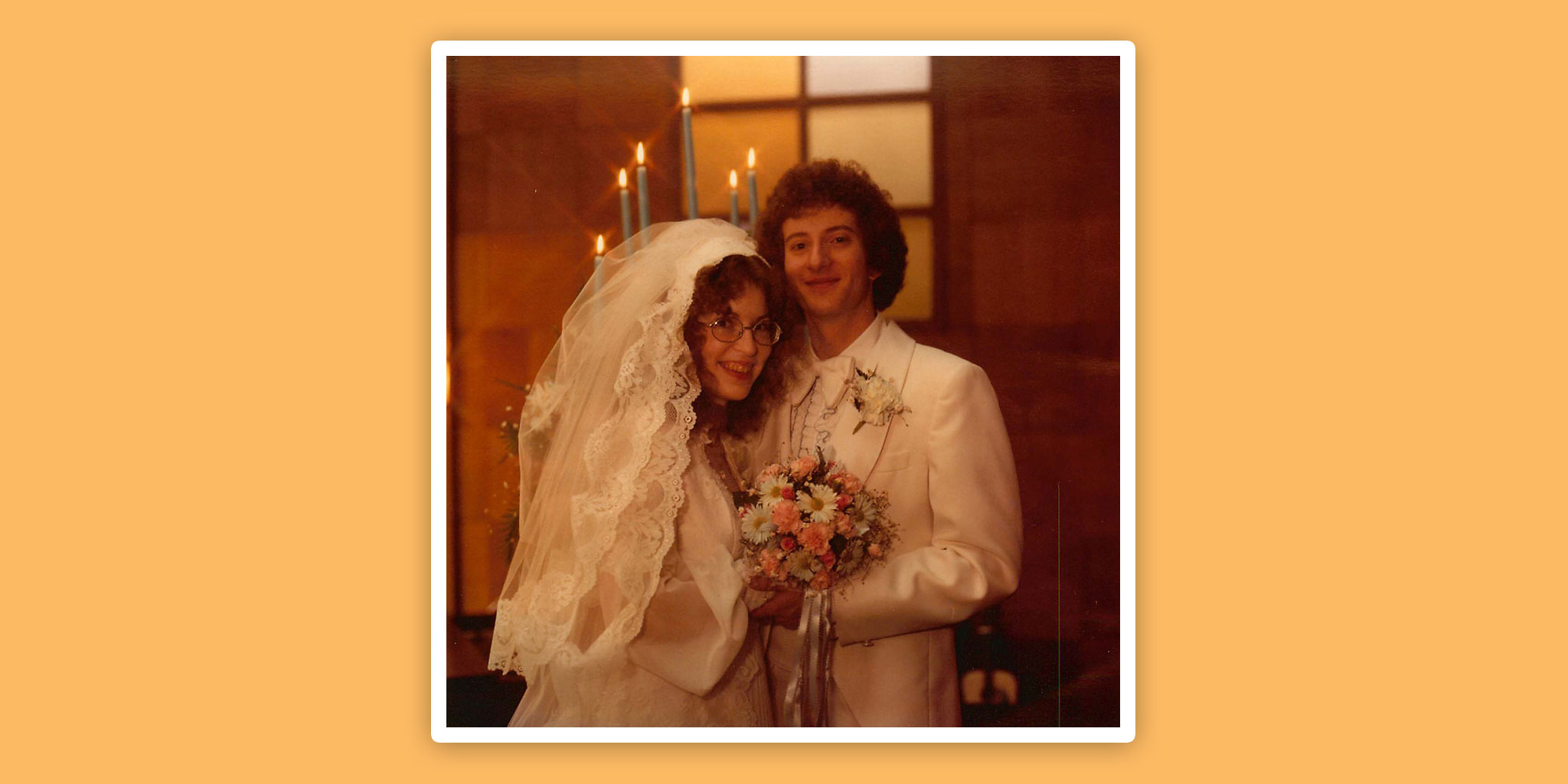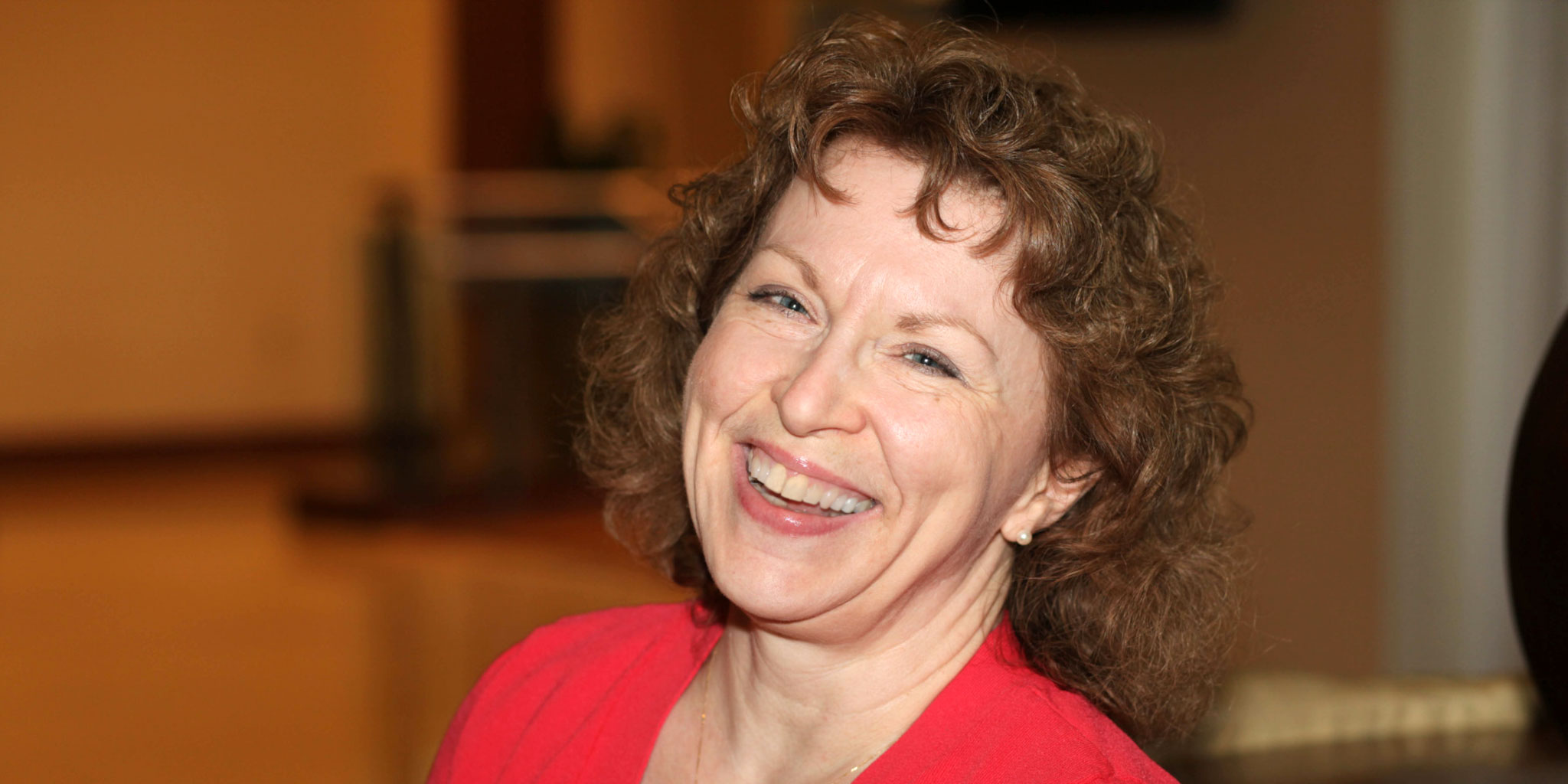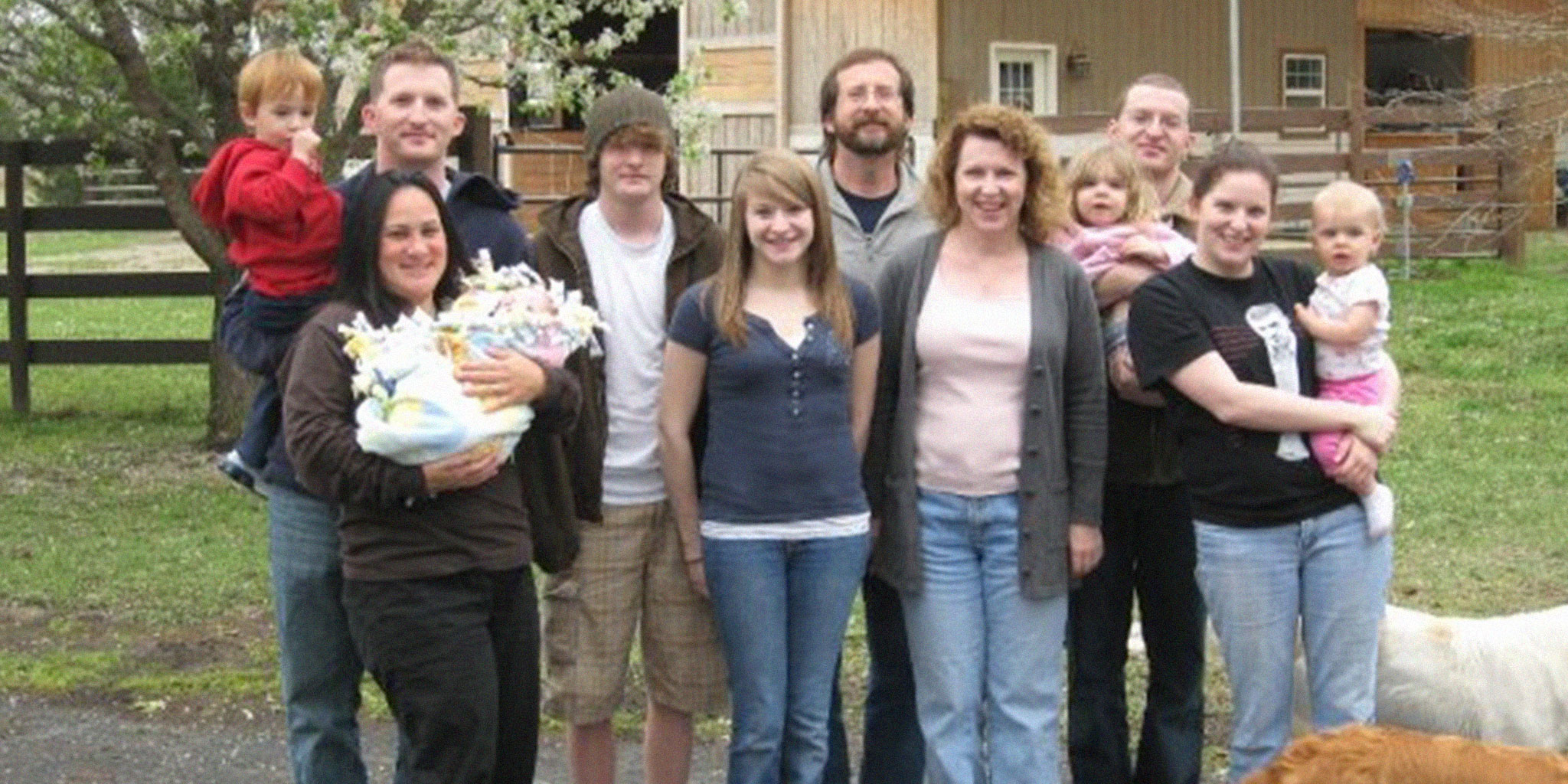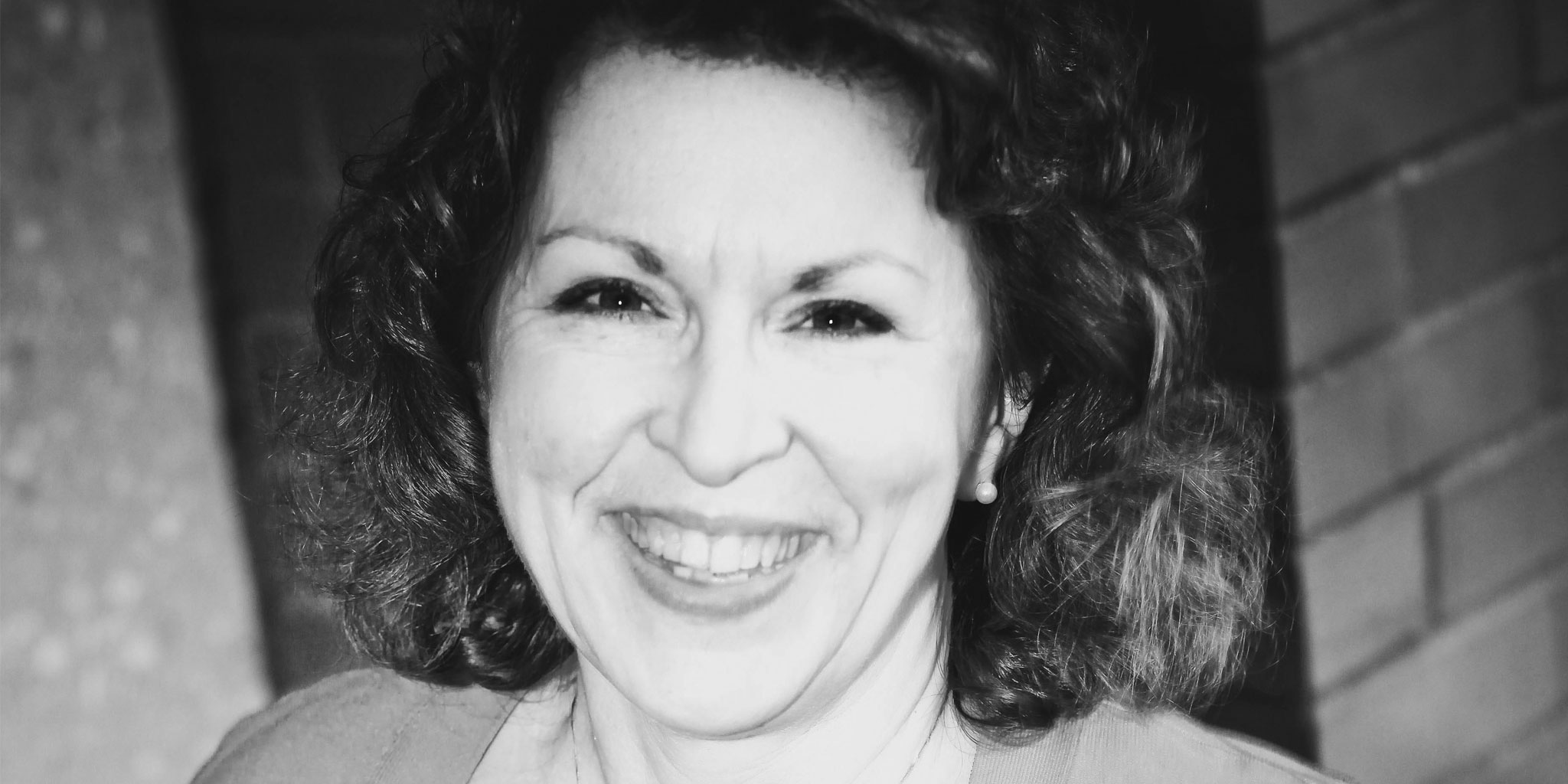Interview with Laura McClellan
Michael Sliwinski: One could just write a whole novel based on your life! Can you just give us a brief summary of how you got to where and who you are today? The readers will easily find your full story on your website.
Laura McClellan: I was born in Washington state, where I grew up and married my husband. We were 18 years old when we got married and started our family when we were 20.
I’ve done everything a little bit backwards, because I married young, then went to college later, and went to law school, and had a lot of adventures on the way. But now, I’m a lawyer by day and mom to five adult kids. We have seven grandchildren, and, in my spare time, I host a podcast called “The Productive Woman.” So that’s pretty much it.
Michael: One word that could embrace your story would be perseverance. I think that you persevere in everything that you do. And you finish everything you start, don’t you? You got married very young and you persevered: you went back to college, you graduated, you went to law school and then became a partner in a major law firm… It’s a stunning perseverance!
Laura: Well, thank you. I have to confess that I sort of attribute my success, to the extent I’ve had it, to having chosen wisely who I married, because my husband is very supportive and he has really encouraged me to pursue the things that I do. And I couldn’t have done it without him, I really couldn’t.
Michael: Let’s talk about your husband then. :-) You’ve been married for 37 years now, right?
Laura: Yes… Exactly.
Michael: How did you make this happen? How have you managed to stick together for so long? I’ve been married for 11 years and I already think it’s a big accomplishment, but 37 years is amazing. What is your secret to a firm and long-lasting relationship?
Laura: It’s a little bit sad that it is such an accomplishment. I mean, being married is hard. Most of us, as human beings, are a little bit on the selfish side. And marriage requires constant compromise and thinking of the other person. And I’m not going to lie — it’s been tough at times. I don’t want to pretend that we’ve had some ideal marriage for 37 years. We’ve been married a long time and we’ve been through ups and downs just like everybody else. We made a commitment when we took those vows and ending it was never an option for us. It was never a serious option, and I will admit there have been moments when we thought, I don’t even like you very much, much less love you. But we just made a decision that we were going to work through the hard times and support each other and stick with it. So, it’s not easy, but for us it’s been worth it. It really has.
Michael: As you said, it’s strange that right now a long-lasting marriage is an accomplishment. This should be the default, but it’s not. At my age, I’ve already been through a wave of marriages and then the wave of divorces in my circles of friends. This is depressing… It’s not how it’s supposed to be, right?
Laura: Well, I don’t think so. I certainly understand and don’t judge people who make a decision to divorce. Marriage is hard, and I think, if you want to get a little philosophical, I think part of the issue is the media. Hollywood movies and all of that portray relationships in a way that I think isn’t very helpful, as if it’s all about how you feel in the moment. And if you don’t feel this overwhelming love and passion, then there must be something wrong and you should move on to somebody else.
And, again, I’m not judging anybody who makes that decision, but what I’ve learned in 37 years of being married is that love isn’t a feeling. It’s a choice. We made the choice to stick through it when the feeling maybe wasn’t even there.

Michael: And that isn’t only valid for relationships. This sentence can be even applied in productivity: it’s not the feelings that guide us. These are decisions and choices. Love is a choice. And lots of things that we do are a choice.
Laura: Yeah….
Michael: There was a very bad movie featuring Will Smith, but there was a very good quote: “Danger is real, but fear is a choice.” That distinction is very important because too often we take some things for granted, like they’re not a choice.
And you chose actually to be productive, get things done and help other women. :-) How did you come up with the idea for a productivity podcast for women?
Laura: I’ve always kind of had this heart to help women, maybe because I am a woman. And whether it’s the podcast or some of the other things I’ve done, it’s never been because I think I’ve figured out all the answers and now I’m going to help, tell them how to solve their problems. It’s that I have conversations with people and I see people struggling and whatever we’re going to do in life, we have to make choices about how we’re going to do it and with whom and for whom, and I can’t help everybody.
And so for me it was kind of an easy choice to try to serve the community of women, because I think I understand them better. I understand the struggles they go through and what they have to contribute. It made sense to me. And anybody who does a podcast has got to define who the audience is. Who are they trying to reach?
I have men who listen and I get feedback from them. It’s not like what I’m saying is not applicable to men… When I am recording, when I’m planning episodes, I’m thinking about the woman who is trying to juggle work and family and personal interest, or whatever, and I just feel like I understand her better than maybe I understand men, and so that because of the life I’ve lived, I feel like I have a little more to offer to the woman who’s listening.
Michael: The subject is close to my heart because I’m about to have a third baby, and she’s going to be a girl. I’m going to have three daughters then, and, hopefully, three powerful women. :-) And I have a wife who’s a powerful woman too. So, as you see, I’m around women all the time. Right now, knowing that I’m going to raise three women, I take a closer look at things from a woman’s perspective. For instance, how women are perceived in business, whether or not they are treated equally, etc.
Laura: I totally get it. My son-in-law would agree with you. Our oldest daughter is married, and they have four little girls. And so he’s in your shoes, raising four girls to hopefully be strong, confident women who can go out and really make a difference in the world.
Michael: That’s right! And happily, I have a theory that women are naturally better organized than men are — my wife, for example, is much more systematic than me. I had to build Nozbe to get organized. :-) Do you think there is any difference in the way women and man approach productivity, organization and time-management?
Laura: I think that the principles of productivity apply across the board. My observation is that women tend to experience some of it a little differently than men do.
First of all, men are — and I hate generalizing, because there are always exceptions — but in general, men seem to be more able to focus on one thing and exclude everything else. And women, we tend to always be thinking all over the place. You know, we’re thinking about home when we’re at work and vice versa.
I also think that women tend to feel more guilty than men do about how they’re doing it. Women tend to often feel like whatever it is they’re working on, they’re doing it wrong. And men seem to be more able to just do it. They’ll do the research, decide on an approach, and be okay with that — and not question whether it’s the right one. It’s whether it’s efficient and whether it’s working for them.
And so, a lot of what I talk about on The Productive Woman is encouraging women to believe that if it’s working for you, it’s good, it’s okay, and you shouldn’t compare yourself to how somebody else is doing things. Find what works for you and go with it.
So, like I said, the principles apply without regard to gender, but the experience I think is a little different.
Michael: You’re totally right. Especially that women are often more emotional than men. I can see that also in my relationship with my wife. For example, I can get focused very quickly on one thing. And she would think about three or four things and then just juggle them in her mind. You’re right.
Talking about juggling… you’re juggling so many things! You run your podcast, you blog and you’re writing your novel. You also have a big family. How do you manage to deal with everything in your life? Do you still work as a lawyer?
Laura: I do. I have a full-time law practice. I’m a lawyer at a very large international firm.
Michael: Wow!
Laura: I’m in our Dallas office and I practice law five days a week, sometime working from home. So it’s a challenge.

Michael: My wife is a lawyer, so I know what you mean….
Laura: Oh….
Michael: You see, when people ask me how I started Nozbe I tell them a story of how I was working from home until 4 p.m. and then could work on Nozbe for a few more hours because my wife wouldn’t come home before 9 p.m. I had a lot of time. :-)
Laura: It’s a challenge. And it’s true for a lot of people in various professions, but lawyers, you know… our clients need us when they need us, and that’s not necessarily between 9 and 5. And so we work sometimes long days and long weeks, and into the weekend, sometimes….
Michael: And do you manage to apply some of the productivity principles you learn and teach at The Productive Woman into the law firm? I mean, did you manage to convince some of your colleagues or partners to implement some new processes in the company to improve efficiency?
Laura: Not firm-wide. And the firm I’m at now, I’ve only been there for a little over a year, so my influence isn’t too big. I’m still learning where things are. In the prior firm, I did do presentations a couple of times when the new batch of lawyers would come in the fall. And there were a couple times that they had me come and talk to them about best practices for being productive and managing the things we have to do with the office. And so I’ve done a little bit of that, and then just interacting one-on-one with lawyers, and when they see that what I’m doing, or how I’m able to get things done, it gives me an opportunity to share what I know and make suggestions; if they come and ask me, I’ve got plenty of things to say.
Michael: Exactly! We all know that routines are one of the key elements of every productivity system — what routines help you stay on top of things?
Laura: I am sort of routine-oriented. I’m a big fan of when there are things that you have to do repeatedly, doing them the same way every time so they become a habit. And so I have my morning routine: I get up, and as I’m getting ready for the day, I’m looking at my calendar, thinking about what’s on tap for the day, and making a decision about what I’m going to start with first. Actually, that starts the night before, but I’m starting with my morning routine, and spending a little bit of quiet time reading, even if it’s just 10 or 15 minutes of reading something that’s sort of inspirational. I have my breakfast and then am off to the office.
I always know before I walk in the door what I’m going to do first. I’ve looked at my task list, I’ve looked at my calendar and I have made a tentative decision about what I’m going to be working on when I come in first thing in the morning.
Without doing that, there’s a lot of drift that happens in the morning. If you haven’t made a decision before you get there about what you’re going to start with, then you lose 15 to 30 minutes wandering around, deciding what should you do first. Those sorts of things, if you want to call them routines or habits, help me get the stuff done.
I try not to work past five or six o'clock in the evening, but in order to be able to do that, I have to really be methodical and organized about how I use my time during the day.
I have a routine in the evening at home of turning off the TV at least half an hour before I want to go to bed and spending some time winding down to help me sleep better.
Michael: For me, the morning routine starts the evening before too. I set my three most important tasks for the next day. It’s crucial for my productivity. And I really sleep well after that. It gives me the sense of clarity.
Laura: Yeah….
Michael: Creating a morning routine took me several months, if not years. I couldn’t find it. I was trying different things, but in the end I nailed it, and I’ve been very consistent with it over the last months — and it makes all the difference.
Laura: Yeah, it really does. And everybody has to figure out for themselves what that is. For some people it’s a morning workout. I’ve had a guest — a very busy businesswoman — and she gets up at 4:30 in the morning, goes out and meets with another group of women to do a boot camp kind of thing outside. She says that’s key for her: getting her blood pumping, getting ready and getting her day off to a good start.
So everyone has to figure that out for themselves, but having those routines in place that start your day right and end your day well can bookend the day and make for a better and more productive day.
Michael: Yeah, although it’s really easy to give up. You try several things, and after a few days you just slack off, you give up. I encourage everyone: don’t give up. If you figure this out, it just pays in dividends.
Laura: And it doesn’t have to take a lot of time either. Some people, especially those who work from home and kind of work for themselves, may have this hour, two-hour routine of things that they do in the morning. For those of us who have to get out of the house and go to an office, or if we have children that we have to wake up and take care of, it may be 15 minutes. But having those 15 minutes that you give some thoughts to how you’re going to live your day and kind of get yourself centered and ready to go can make all the difference.
Michael: Today is the first day of the summer vacation here and my daughters won’t go to school any more. I’m going to change my routine because of that. But during the school time, when I take them to school, I have my own 20-minute routine. Thanks to that, I wasn’t stressed anymore when I was taking them to school — I have already gotten started on my morning and knew what to do when I returned home. It’s a good thing that my children wouldn’t see a stressed father. :-)
Laura: I agree.
Michael: Additional benefit right there….
Laura: Yeah.

Michael: Apart from routines, is there anything else that really works for you? Or are there any essential pieces of productivity-related advice you would like to leave our readers with?
Laura: Again, it’s going to be different for everybody. However, there are two things I think I would say are really important for making a productive life.
One of them is the weekly review. This is something that I do for me every Sunday afternoon. It’s where I go through my task manager and I look at every project and I say, “Is this still something I want to work on? Are there any tasks I need to add to it?” The goal is to get the big picture look at how am I doing. So that’s part of it — looking at the task manager, making sure I know what’s up, what’s on deck, look at my calendar for the coming week and think, okay, what days do I have appointments? What days am I going to be in the office all day? What days do I have the evening commitments, and what do I need to do to prepare for that?
I don’t spent more than about an hour on a Sunday afternoon doing this, but it gives me that big picture look at my week to make sure that I’m ready for it. That way I can go into Monday feeling like I’m on top of things. And not having to worry about what I’m missing or forgetting.
Any time anybody asks me something like “What’s your number one piece of advice for someone to have a productive life?”, I have the same answer every time: write everything down. Have some system where you capture everything — whether you’re a techie nerd like me and you’re going to use a digital tool like Nozbe to capture all the projects or ideas and things that you want to do. Or whether you’re an analog person and you just carry a notebook around, or 3x5 cards, or whatever.
But our minds are meant for creative thinking, not for storing stuff. If you can get in the habit of writing things down, whether it’s appointments, ideas, projects, commitments, or whatever, write those things down as soon as they come to you and get into a system that you trust and you check regularly. It’s going to free up your mind to do the creative or productive work that you need to do, because you’re never going to have that lost energy of your mind trying to make sure you remember that you’re supposed to pick up the dry cleaning on your way home or something. So, that’s my number one….
Michael: You’re so right here. The moment that I got this habit of writing everything down, I trust myself. And whenever I cheat on that, and I’m like, oh, I’m going to remember that. Whoooh… I just hear it going away. :-)
Laura: Absolutely!
Michael: After years of training, my mind is no longer used to storing information. So whenever I try to cheat the system, it just works against me.
But on the other hand, thanks to that, I really know where things are. And whenever they are not in my trusted system, I’m kind of screwed. But most of the things are there, and it’s been very helpful. As you said, it’s hard to emphasize this enough. Writing things down is the key because we’re really bad in storing information.
Laura: And especially these days in the 21st century there is so much coming at us all the time. It’s simply impossible for the normal human being to remember everything they need to remember, whether it’s phone numbers or websites or appointments or a project you agreed to be part of, as well as the things that you need to do to complete that project. There’s just too much.
And there’s nothing that will add more to your peace of mind — and therefore your ability to be creative and a problem-solver and productive — to make a life worth living. Nothing will help more than developing that habit. That’s where it starts, and it buys you the time and the energy and the mental capacity to do everything else that you need and want to do.
Michael: So basically, what Laura is telling you is: write things down and review them regularly….
Watch the interview with Laura:

